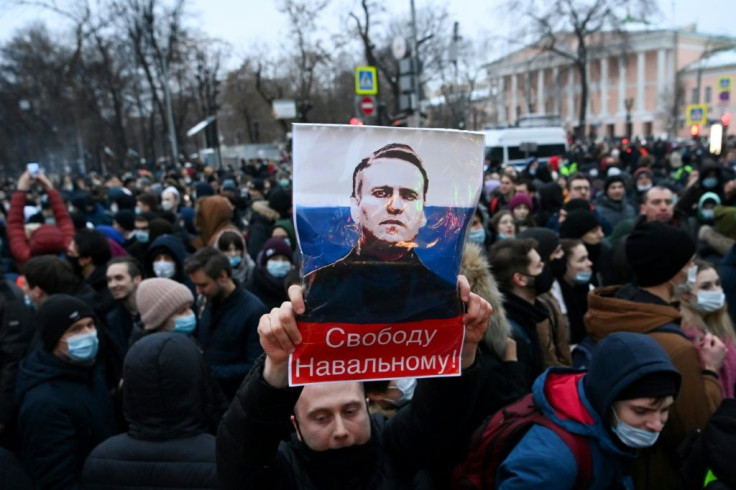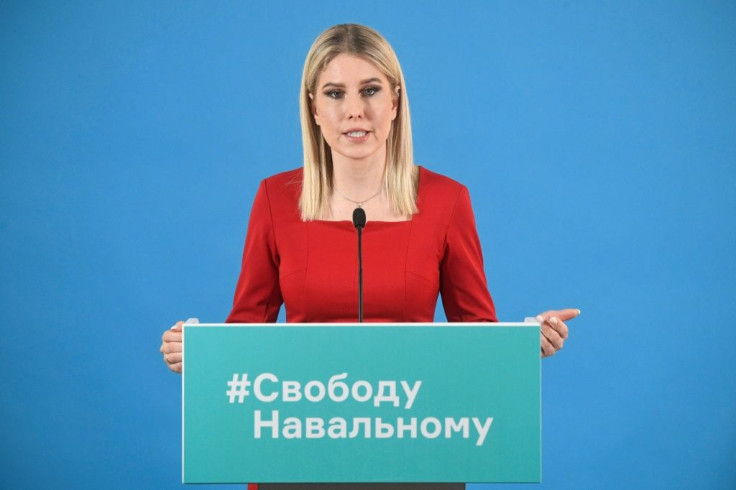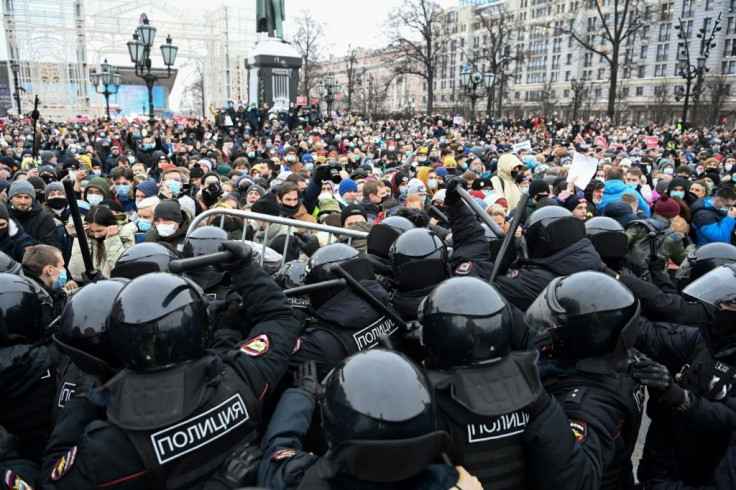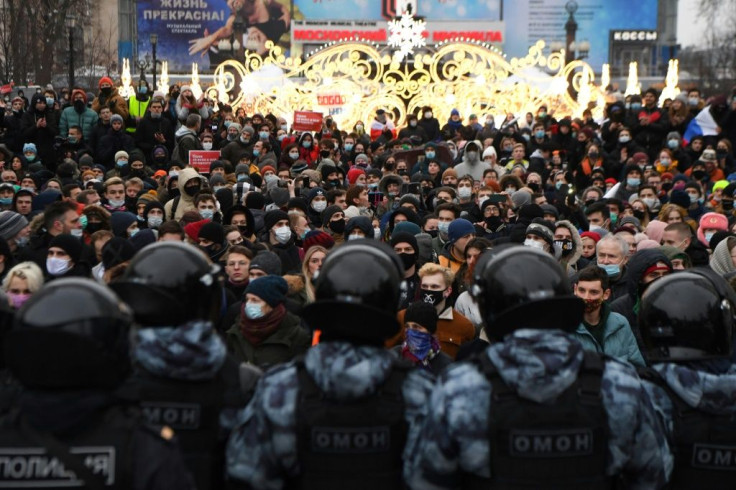Navalny's Team Calls For Weekend Protests Outside Russia's FSB
Aides of jailed Kremlin critic Alexei Navalny called Tuesday for new anti-government rallies in Moscow this weekend outside the FSB security agency and Vladimir Putin's presidential administration.
The 44-year-old opposition figure's team posted an event on Facebook calling for his supporters in Moscow to gather at noon (0900 GMT) on Sunday at Lubyanka Square outside the FSB headquarters and Staraya Square, where the presidential administration has its offices.

The team said that protesters would then march through the capital from the two squares, which are about a kilometre (half a mile) apart on a street in central Moscow.
"The direction of the march will be determined depending on the situation," the organisers wrote.
Police on Saturday detained nearly 3,900 people -- a record for a single day -- at rallies in more than 100 cities across the country, where demonstrators called for Navalny's release and protested against the government.

Navalny was detained on January 17 upon his arrival in Moscow from Germany, where he had been recovering following a poisoning attack with a Soviet-era nerve agent.
Navalny accuses the Federal Security Service (FSB) of carrying out the poisoning on Putin's orders, a claim the Kremlin has repeatedly denied.

Leonid Volkov, head of Navalny's regional network, told AFP that organisers had decided to gather protesters at the FSB because they are the "poisoners" and the presidential administration because they "make the decisions about whether to jail or release Navalny".
"So of course we are appealing to them," he said.
On Tuesday, Kremlin spokesman Dmitry Peskov described the demonstrators as "lawbreakers" and rally organisers as "terrorists" in comments to reporters.

Volkov earlier called on Russians to rally again to put pressure on the authorities to release Navalny ahead of his scheduled court appearance Tuesday, on charges of breaking the terms of a 2014 suspended sentence.
Navalny could be jailed for more than three years if the court rules in favour of Russia's prison service, which says Navalny failed to check in with it twice per month while he was in Germany.
In a joint statement, the foreign ministers of the G7 group of rich nations -- Canada, France, Germany, Italy, Japan, the UK and the US -- described Navalny's detention as "deplorable" and called for his "immediate and unconditional release".
At a press conference at the offices of Navalny's Anti-Corruption Foundation in central Moscow, his associate Lyubov Sobol said people joined last weekend's protests because of "the lawlessness that is happening in our country".
She predicted that the rallies will continue because "unfortunately there is simply no other instrument for Russians to declare their rights".
Russian authorities have clamped down on previous large-scale opposition protest movements by launching criminal cases against demonstrators for violence against law enforcement officials.
On Tuesday, the Investigative Committee, which examines major crimes, said it had opened probes into 20 people for "using violence against government officials" during Saturday's rallies.
Describing several instances of alleged violence, the committee said in a statement that in Moscow one man "inflicted several blows to the head of a police officer", while another hit an officer with his car.
Violence against government officials is punishable by five to 10 years in prison depending on the severity of the violence.





















